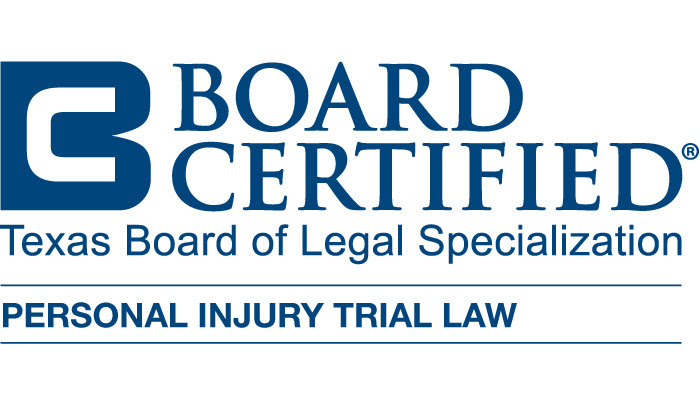Bicycling offers a wonderful way to enjoy the outdoors, commute efficiently, and stay fit. However, it also comes with its own set of risks, particularly when sharing the road with motor vehicles. Bicycle accidents can occur in the blink of an eye and can result in serious injuries. Knowing what steps to take immediately after an accident can be crucial for your safety, health, and legal protection.
At Willumsen Law Firm, P.C., we understand the complexities and emotional toll of bicycle accidents. This guide is designed to provide you with comprehensive information on what to do if you find yourself in such an unfortunate situation.


Immediate Safety and Medical Attention
The moments following a bicycle accident can be chaotic and overwhelming. The first and foremost priority should be ensuring your safety and seeking medical attention. Even if you believe your injuries are minor, it’s crucial to move to a safe location away from traffic, if possible. Adrenaline can mask pain and the extent of injuries may not be immediately apparent. Call 911 or ask someone nearby to call for emergency services. Paramedics can assess your condition and transport you to the hospital if necessary.
While waiting for medical assistance, try to remain calm and avoid unnecessary movement. If you have any visible injuries, apply pressure to stop any bleeding and keep the injured area elevated if possible. If you suspect a head, neck, or back injury, it’s best to stay still and wait for medical professionals to arrive to prevent exacerbating any potential spinal injuries.
Gathering Information and Evidence
Once your immediate safety and health have been addressed, the next step is to gather as much information and evidence as possible. This can play a critical role in any future legal actions or insurance claims. If you’re able, collect the contact details of any involved parties, including drivers, passengers, and witnesses. Make sure to obtain names, phone numbers, addresses, driver’s license numbers, and insurance information.
Photographs can be invaluable in documenting the scene of the accident. Use your phone to take pictures of your bicycle, the vehicle(s) involved, the road conditions, any visible injuries, and the overall accident scene. These images can provide a clear picture of what happened and support your version of events. Additionally, look for any surveillance cameras nearby that might have captured the incident. Nearby businesses or homes with security cameras could have recorded the accident, providing crucial footage.
My focus is to give a voice to families who have suffered a wrongful death or a serious injury to a family member caused by an 18-Wheeler, commercial truck, or a drunk driver. Contact us today, we can help you.Helping Injury Victims for Over 25 Years
Reporting the Accident
Reporting the accident to the police is a vital step, even if it seems like a minor incident. A police report can serve as an official record of the accident, detailing the involved parties, the circumstances, and any immediate observations by the responding officers. When speaking with the police, be honest and provide a clear account of what happened. Avoid speculating or admitting fault, as the full details may not be clear in the immediate aftermath.
It’s also important to report the accident to your insurance company as soon as possible. Provide them with all the gathered information and cooperate fully with their investigation. However, be cautious in your communications and avoid making statements that could be interpreted as admitting fault. Insurance companies may try to minimize payouts, so having a clear, factual account and any evidence will support your claim.
Seeking Medical Evaluation
Even if you received initial medical attention at the scene or shortly afterward, it’s crucial to follow up with a thorough medical evaluation. Some injuries, such as concussions, internal bleeding, or soft tissue damage, may not be immediately apparent. Visiting a healthcare provider ensures that all injuries are properly diagnosed and treated. This is not only essential for your health but also provides documented evidence of your injuries, which can be important for any legal or insurance claims.
Keep detailed records of all medical visits, treatments, and expenses. This includes hospital visits, follow-up appointments, physical therapy, medication, and any other related costs. These records can demonstrate the extent of your injuries and the financial impact of the accident, supporting your claims for compensation.
Legal Considerations and Representation
Navigating the legal aftermath of a bicycle accident can be complex and overwhelming, especially when you’re dealing with injuries and recovery. Consulting with an attorney who understands personal injury and bicycle accident cases can provide you with invaluable guidance and representation. At Willumsen Law Firm, P.C., we have extensive experience in handling such cases and can help protect your rights and interests.
An attorney can assist in several critical areas. They can communicate with insurance companies on your behalf, ensuring that you don’t inadvertently say something that could jeopardize your claim. They can also investigate the accident, gather additional evidence, and identify any liable parties. This might include not only the driver but also entities responsible for road maintenance or vehicle manufacturers if mechanical failures contributed to the accident.
If your case goes to court, having an attorney can be crucial for presenting a compelling case. They can advocate for you, seeking compensation for medical expenses, lost wages, pain and suffering, and any other damages you’ve incurred. Legal representation can significantly increase the chances of a favorable outcome, allowing you to focus on your recovery.
Understanding Your Rights
As a cyclist, you have the same rights and responsibilities on the road as motorists. It’s essential to understand these rights and ensure they are upheld after an accident. This includes the right to use the road, the right to safe passage, and the right to seek compensation if you’re injured due to someone else’s negligence.
Drivers have a duty to exercise caution and watch for cyclists, especially in areas where bicycles are common. If a driver’s negligence, such as distracted driving, speeding, or failing to yield, led to your accident, they can be held liable for your injuries and damages. Understanding these legal principles can empower you to take the necessary steps to protect your interests and seek justice.
Related Videos
Choosing a Personal Injury Attorney
Types of Compensation in a Truck Accident Claim
Emotional and Psychological Impact
A bicycle accident doesn’t just cause physical injuries; it can also have a profound emotional and psychological impact. The trauma of the accident, coupled with the stress of recovery and legal proceedings, can take a toll on your mental health. It’s important to acknowledge these feelings and seek support.
Consider speaking with a mental health professional to address any anxiety, depression, or post-traumatic stress you may be experiencing. Joining a support group for accident survivors can also provide a sense of community and understanding. Taking care of your mental health is a crucial part of the recovery process and can help you navigate the challenges that come with healing from an accident.
Preventative Measures for the Future
While it’s impossible to eliminate all risks, there are steps you can take to reduce the likelihood of future bicycle accidents. Always wear a helmet and other protective gear, such as reflective clothing and lights, to increase your visibility to drivers. Follow all traffic laws, signal your intentions clearly, and stay alert to your surroundings.
Regularly maintain your bicycle to ensure it’s in good working condition. Check the brakes, tires, and lights before each ride. If you notice any issues, address them promptly to avoid potential accidents caused by mechanical failures.
Being proactive about safety can help protect you and prevent future accidents. However, if another accident does occur, knowing the steps to take and having the right support can make a significant difference in your recovery and legal outcomes.
Getting the Justice You Deserve
Bicycle accidents can be life-altering events, leaving victims with significant physical, emotional, and financial burdens. Knowing what to do immediately after an accident can help protect your health and legal rights. At Willumsen Law Firm, P.C., we are committed to helping accident victims navigate the complex aftermath of such incidents.
From immediate medical attention to legal representation, our team is here to support you every step of the way. If you or a loved one has been involved in a bicycle accident, don’t hesitate to reach out to us. Your recovery and rights are our top priority. Contact Willumsen Law Firm, P.C. today for a consultation and let us help you get back on the road to recovery.



